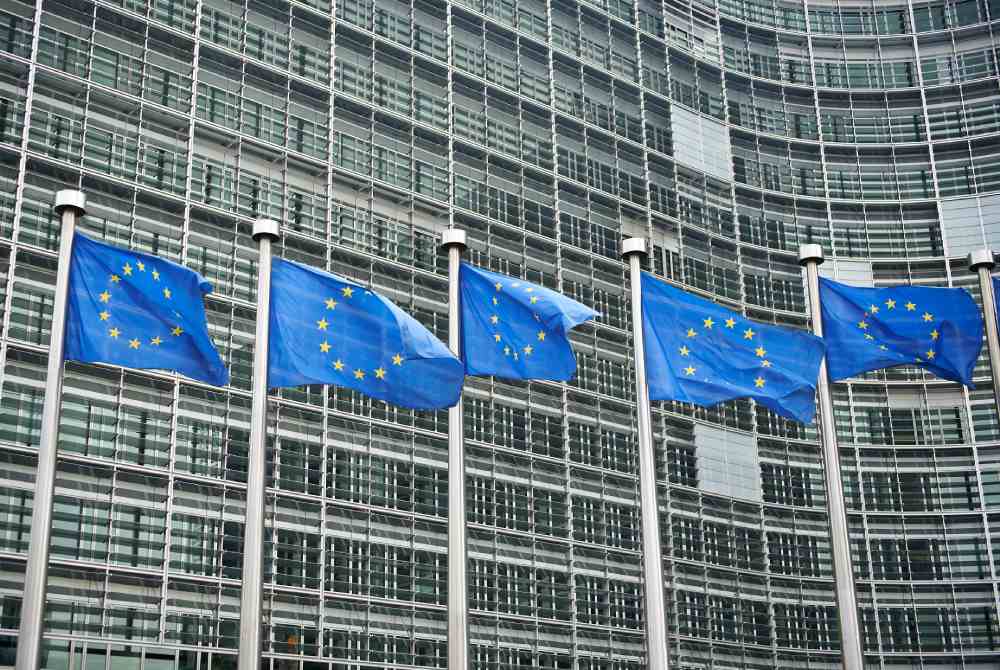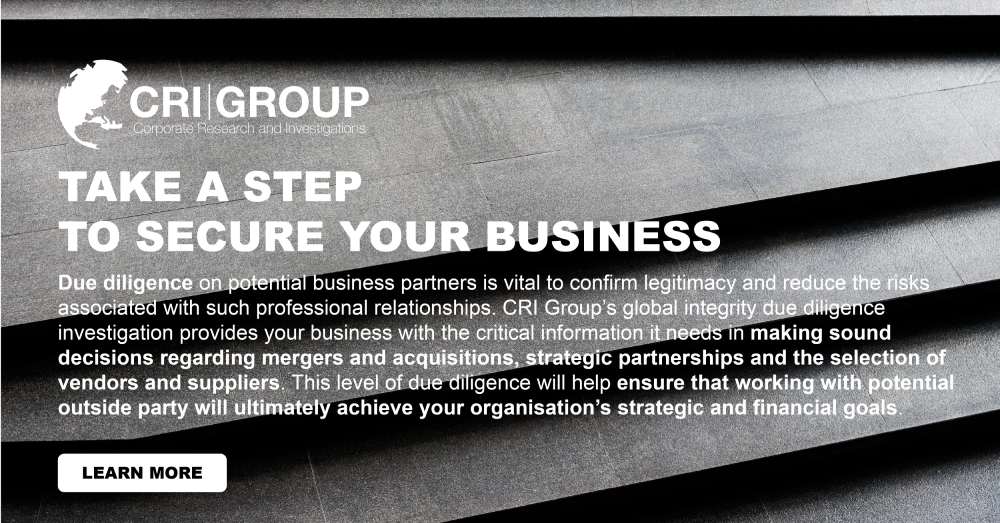The European Union has released a groundbreaking directive that will transform global supply chains forever. This directive will require large EU companies and non-European companies conducting significant business in Europe to assess and address their human rights and environmental impacts. The numbers are staggering – 13,000 EU companies and 4,000 non-EU companies will be affected by this monumental regulation.
But why is this directive causing such a seismic shift? The answer lies in the importance of Human Rights Due Diligence (HRDD) for companies. The European Union, as the headquarters of some of the world’s largest corporations, understands the critical role it plays in shaping global business practices. Shockingly, the 2020 Corporate Human Rights Benchmark revealed that 85% of alleged human rights impacts occur in developing countries, despite 78% of the implicated companies being based in OECD countries.
This directive builds upon previous transparency initiatives such as the EU Non-Financial Reporting Directive and the Conflict Minerals Directive. Its aim is to hold companies accountable for their human rights and environmental impacts, ensuring they take proactive measures to prevent, mitigate, and remedy any harm caused.
Non-compliance with this groundbreaking directive will have severe consequences. Companies failing to conduct effective due diligence or implement necessary measures will face administrative penalties and civil liability.
The implications are immense. The EU’s influence on global business practices is unparalleled, with €223.3 billion worth of goods imported into its territory. This directive is set to reshape supply chains, foster responsible business conduct, and protect vulnerable workers and communities worldwide.
What is Human Rights Due Diligence?
Human Rights Due Diligence entails taking deliberate actions to ensure that their operations and choices do not contribute to or benefit from human rights abuses. It is a responsibility that extends to businesses of all sizes and sectors. HRDD requires companies to be conscious of the products they procure, the services they utilize, and whether the rights of the people involved in their production have been safeguarded.
Supply Chain and Human Rights Due Diligence
Did you know that major global players like the United States, the European Union, and Germany are taking decisive steps to ensure that supply chains uphold human rights and environmental standards? It’s a crucial development that companies cannot afford to ignore.
The movement to hold companies accountable for their supply chains is gaining momentum worldwide, emphasizing tracing activities down to raw materials. The rules vary, with some being specific to individual companies based on their registration location, while others extend to goods crossing borders, irrespective of the manufacturer’s origin. Non-compliance human right risks range from minimal enforcement to penalties, civil actions, and even goods detainment.
Let’s delve into some of the notable regulations and proposals.
- First, the United States has implemented the Uyghur Forced Labor Prevention Act (UFLPA) and employs Withhold Release Orders (WROs) to curb imports linked to forced labor.
- Meanwhile, the European Union is working towards enacting the Corporate Sustainability Due Diligence Directive (CSDDD) and a proposed regulation banning products made with forced labor.
- Germany has already implemented the Supply Chain Due Diligence Act (LkSG), which obliges companies to establish and update due diligence procedures to enhance compliance with human rights and environmental standards.
While these jurisdictions are taking the lead, numerous other countries, including the United Kingdom, France, Australia, the Netherlands, Canada, and Norway, are also considering similar measures. The global trend is clear: companies will soon face heightened expectations and obligations regarding human rights and environmental sustainability.
UN Guiding Principles on Business and Human Rights
The Guiding Principles on Business and Human Rights outline the corporate responsibility to respect human rights. These principles provide a global standard of expected conduct for all businesses and apply independently of a state’s obligations. The responsibility to respect human rights requires that businesses avoid infringing on the rights of others and address adverse human rights impacts they are involved in.
Here is a summary of the key principles:
-
Principle of Respect:
Business enterprises should respect human rights and avoid infringing on the rights of others. This responsibility exists regardless of a state’s ability to fulfill its own human rights obligations and goes beyond compliance with national laws.
-
Internationally Recognized Human Rights:
The responsibility to respect human rights includes internationally recognized human rights as expressed in the International Bill of Human Rights and the International Labour Organization’s Declaration on Fundamental Principles and Rights at Work.
-
Avoidance of Adverse Impacts:
Businesses should avoid causing or contributing to adverse human rights impacts and address such impacts when they occur. This includes both impacts from their own activities and impacts linked to their business relationships.
-
Size and Context:
The means through which businesses meet their responsibility to respect human rights may vary based on factors such as size, sector, operational context, and severity of impacts. All businesses, regardless of these factors, have the responsibility to respect human rights.
-
Policy Commitment:
Businesses should have a policy commitment to meet their responsibility to respect human rights. This commitment should be approved at the most senior level, informed by expertise, communicated internally and externally, and reflected in operational policies and procedures.
-
Human Rights Due Diligence:
Businesses should conduct human rights due diligence to identify, prevent, mitigate, and account for their adverse human rights impacts. The complexity of due diligence may vary based on the size of the business and the severity of human rights impacts.
-
Integration and Action:
Findings from human rights impact assessments should be integrated into relevant internal functions and processes, and appropriate actions should be taken to prevent or mitigate impacts. The enterprise should exercise leverage to address impacts it contributes to and seek to increase leverage where necessary.
-
Tracking and Communication:
Businesses should track the effectiveness of their responses to human rights impacts and communicate externally about their actions. Communications should be accessible, provide sufficient information for evaluation, and not pose risks to stakeholders or commercial confidentiality.
-
Remediation:
When businesses identify that they have caused or contributed to adverse impacts, they should provide for or cooperate in their remediation through legitimate processes.
-
Contextual Considerations:
Businesses should comply with applicable laws, respect internationally recognized human rights, and treat the risk of causing or contributing to gross human rights abuses as a legal compliance issue. In complex contexts, businesses should seek external expertise from credible sources and prioritize actions to address the most severe impacts.
These principles aim to guide businesses in fulfilling their responsibility to respect human rights and promote accountability and transparency in their operations.
Choose CRI Group™ ESG Due Diligence Service For Risk Mitigation
With the release of groundbreaking directives and the global movement towards human rights due diligence, the business landscape is experiencing a transformative shift. At CRI Group™ , we understand the challenges and opportunities arising from these changes and are here to help businesses thrive in this evolving context.
As a 30-year experienced service provider, we offer comprehensive human rights due diligence solutions through our ESG due diligence services that assist companies being compliant with the laws and achieving sustainable practices. Here’s how we can support your business in the light of this changing landscape:
Expert Guidance
Our team of experts stays up-to-date with the latest regulations, directives, and guidelines surrounding human rights due diligence. We provide tailored advice and practical strategies to help you navigate the complexities of these frameworks and ensure compliance.
Due Diligence Assessments
We conduct thorough due diligence assessments, evaluating your company’s human rights practices, environmental impacts, and supply chain operations. We identify and assess actual and potential risks, areas for improvement, and opportunities for positive impact, enabling you to make informed decisions and take targeted actions.
Compliance Strategies
We assist you in developing effective compliance strategies that align with international standards and regulatory requirements. Our expertise in interpreting and implementing these frameworks helps you establish robust policies, procedures, and reporting mechanisms that demonstrate your commitment to responsible business practices.
Stakeholder Engagement
Engaging with stakeholders is crucial in the realm of human rights and environmental sustainability. We help you build meaningful relationships with stakeholders, including employees, suppliers, communities, and investors. Through transparent and inclusive communication, we help foster trust, gather valuable insights, and drive positive change.
Training and Capacity Building
We offer customized training programs and capacity-building initiatives to empower your workforce with the knowledge and skills necessary to navigate the evolving landscape of responsible business practices. Our workshops and educational events enhance awareness, encourage ethical decision-making, and foster a culture of sustainability within your company’s operations.
Supply Chain Management
We assist you in implementing robust supply chain management practices that prioritize human rights, environmental sustainability, and ethical sourcing. By mapping and monitoring your supply chain, we help identify potential risks, support supplier engagement, and promote responsible sourcing practices.
Performance Measurement and Reporting
We help you develop comprehensive performance measurement frameworks and reporting systems to track your progress towards sustainability goals. Our expertise in data collection, analysis, and reporting enables you to effectively communicate your efforts, achievements, and areas for improvement to stakeholders and build trust in your commitment to responsible business practices.
Continuous Improvement
We recognize that responsible business practices require ongoing commitment and continuous improvement. Our services provide ongoing support, allowing you to adapt to evolving regulations, incorporate best practices, and continually enhance your sustainability performance.
Our due diligence services equip your business with the tools and knowledge to thrive in this dynamic landscape shaped by the EU directive and global trends. We are dedicated to helping you navigate the complexities of human rights due diligence, embrace sustainability, and positively impact society and the environment.
Partner with us to embrace the opportunities this changing business landscape presents and build a resilient and responsible future for your organization. Together, we can drive meaningful change and contribute to a more sustainable and equitable world.






